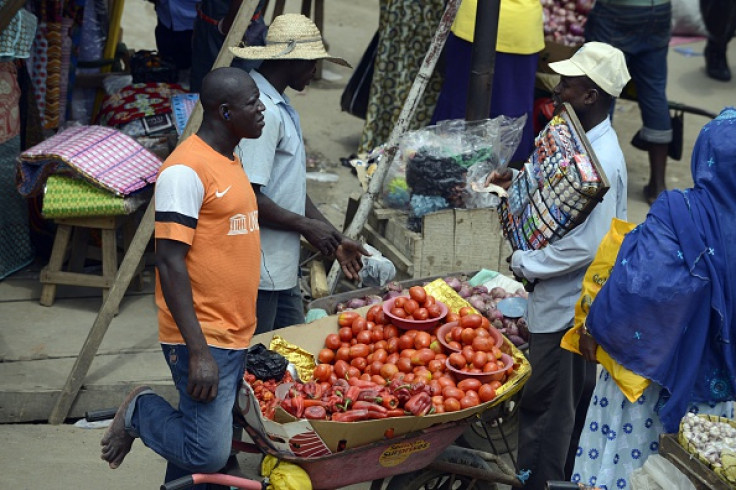Nigeria: Igbos claim Owonifari Market demolition ethnically motivated

The government of Lagos state, Nigeria's commercial hub, has defended its decision to demolish a local market by saying it is part of a plan to bring safety and development to the area. Authorities dismantled the Owonifari Market in the local government area of Oshodi between 6 and 7 January arguing that the site was "a den of criminals".
However, the demolition enraged many, who accused the government of not giving enough time to vendors to collect their goods. The South East Amalgamated Marketers Traders Association (Semata) alleged that the demolition mostly affected Igbo people, one of Nigeria's largest ethnic groups.
Semata's President Chief Okwudili Ezenwankwo said in a statement: "The traders there are mostly Igbos who travelled for the [Christmas] celebration. Why did the demolition take place at their absence? We condemn [it] and demand for compensation to those that lost their goods to the demolition."
Maduabuchukwu Anyagulu, an Igbo businessman from Anambra state, told IBTimes UK it was not the first time that a market where Igbos had stalls and shops had been targeted. He alleged that the Yoruba and Hausa ethnic groups prevent Igbos from doing business and developing.
He said: "My people are very slow to come to terms with the fact that in Nigeria today our very means of survival and relevance are in danger and under attack."
Some Igbos identify themselves as Biafrans, a term used to define people living in the Biafran territories that were forcibly annexed to present-day Nigeria during the British colonisation. "I do not want to appear to be spreading hate, but it is factual that if the Yorubas and Hausas had allowed the Biafran man the space to excel, Nigeria would have been a great country," Anyagulu added.
Government's response
Lagos's commissioner for information and strategy, Steve Ayorinde, said during a press conference that traders had been informed about the government's plan on 21 December. He also denied that the traders' goods were confiscated or destroyed and insisted business owners were offered to relocate to a newly built market area in the nearby Bolanle that is able to accommodate around 600 shops, news agency NAN reported.
The commissioner explained that local authorities tried to repeatedly engage with the leadership of the market and that the issue of safety had been going on for about 10 years. He added the government agreed to pay N5,000 (£171) for each shop that relocated to Bolanle area.
He said: "There is nowhere in Lagos where you will agree to be paying N5,000 per shop not to talk of central Oshodi, but the governor agreed with them and we said we were ready to concede after which we now formally served them with a quit notice through the office of the Commissioner for Physical Planning and Urban Development."
Some traders are believed to have refused to relocate to the new market area, however.
Oshodi: How Minister of Works reversed demolition of Owonifari market https://t.co/7jo7TQEANK pic.twitter.com/pWJ27qcTte
— Newsroom Nigeria (@NewsroomDaily) January 7, 2016The Commissioner for Local Government and Community Affairs, Mr Muslim Folami said during the conference that he was present during the demolition, during which weapons and a bunker were discovered in the market.
Ladipo market demolition
In July 2015, Lagos local government demolished the Ladipo market, arguing that it wanted to renovate the area and build good roads and infrastructures.
Some people alleged that the motive behind the demolition was to target Igbos. However, the Igbo Progressive Leaders' Council urged people to stop labelling the demolition as an ethnic problem. The group's president-general, Eze Uche I Dimgba, said in a statement: "We have noticed with gross dismay the divisive move of certain groups and some individuals, who parade themselves as enemies of unity in Nigeria and we wonder what really their mission is.
"Over the years, the Igbo in Lagos have maintained a peaceful co-existence and will continue to enjoy same. We hereby warn desperate politicians who are hell-bent on dividing the Igbo into hundreds of uncoordinated groups for selfish goals to desist from promoting negative propaganda against the government of Lagos State."
The group also dismissed the belief that the market belonged to the Igbos.
© Copyright IBTimes 2024. All rights reserved.






